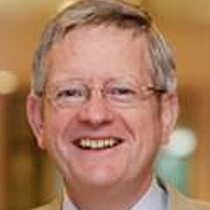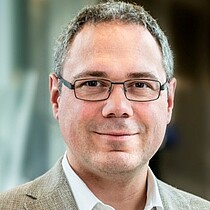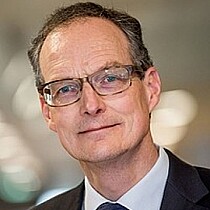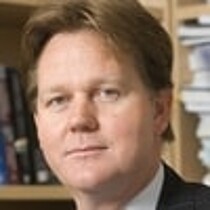

Article: Sunday, 10 March 2013
As markets and industries become more global, it makes increasing sense for multinationals to shift some or all headquarters functions and resources abroad. However, this is a strategic decision that needs to be weighed carefully.
Good business practice often necessitates moving senior executives and resources closer to essential operations and activities, to where they will make a significant difference. While most companies are not likely to transplant their entire headquarters, what we are seeing is a trend to relocate key elements, such as management-team functions and regional and divisional headquarters.
Specific reasons to relocate vary and will depend on the element being considered for relocation. For instance, Halliburton, an international oil services group, relocated the company’s CEO from its headquarters in Houston, Texas, to Dubai in the United Arab Emirates to be close to its major global customers.
Alternatively, the finance department might be looking for fiscal advantages, or to adopt a particular corporate governance regime because capital markets prefer it. With capital markets integrating globally, a CFO might want to be near a major financial centre (as in the case of Nokia, the Finnish mobile phone manufacturer). Sometimes relocating the company headquarters is symbolic, for example when Philips Electronics, the Dutch multinational, moved its main offices from Eindhoven to Amsterdam, mainly to signify its strategic makeover as a global player.
Politics can also make relocating attractive. Some industries, like oil and gas, are dependent on strong governments, such as Russia’s, and regulatory support to ensure things get done. Furthermore, some governments, like the Netherlands’, tend to take a certain amount of pride in hosting corporate headquarters, especially those belonging to prestigious companies. This could be used as a bargaining chip to extract favourable terms and conditions regarding taxation, subsidies, investment and infrastructure from local, regional or national authorities.
Relocation has its barriers. Although an increasing number of top executives relocate abroad, our research shows a rise in related performance for only half of the companies participating in a recent survey. The problem lies in the high costs involved. These not only include transportation and other expenses directly related to the physical move, but also costs associated with the new host country and being based in a remote location (away from the headquarters).
Another impediment is the reluctance of executives to relocate, especially those with strong cultural, community and family ties and no international experience. Moreover, even when they do move, there may be difficulties interacting effectively with other management-team members located elsewhere. Furthermore, some countries (like the Netherlands) insist that all board and shareholder meetings have to take place in the home country if a company is to maintain its domicile status. This means additional travel.
Sometimes a series of events can overcome impediments and expedite the relocation process. A good example is Philips Electronics’ Healthcare division, which moved its headquarters from the Netherlands to the USA. There were several reasons for this move: the USA is a major healthcare market for Philips; it would be close to an important industry cluster; and it could use the headquarters of one of the companies it acquired, whose CEO – an American – was appointed head of Philips Healthcare. With all the pieces in place, the right momentum was created to get otherwise reluctant executives to relocate.
While costs, fiscal advantage and stock-market value associated with relocation are easier to calculate, quantifying other factors is more difficult because they involve intangibles.
Significantly, a survey we conducted indicates that 57 per cent of the participating multinationals have already relocated elements of their headquarters abroad, and 67 per cent intend to start or continue relocating within the next five years.
We recommend that companies should first review their business operations and activities globally and use criteria already discussed to see if there are any candidates for relocation. They then need to weigh the benefits against the drawbacks – especially costs – before making a final decision.
Crucially, if costs outweigh benefits, companies should bear in mind that they still have alternatives – actually trade-offs – to physical relocation. Effective use of information and communication technology, such as video conferencing, supplemented by travel, will reduce some of the drawbacks of distance and improve communications dramatically. Video conferencing usually works well if all or at least key parties involved have met each other face-to-face before appearing online. Another alternative is to establish dual offices, one at headquarters and the other in the ‘remote’ country. This would perhaps be easier to implement than relocating the entire executive office.
Distributing a company headquarters over several locations requires efficient and effective overall co-ordination and communication between the various elements. Finally, companies need to review their relocation decision regularly to check whether the situation has changed and their decision is still valid.



Rotterdam School of Management (RSM)
Erasmus University Rotterdam

This article is based on Should top management relocate across national borders? which was published in Sloan Management Review – Winter 2012, Vol 53, No.2. The research was conducted by INSCOPE: Research for Innovation, and sponsored by VNO-NCW. Web: www.inscope.nl.


Science Communication and Media Officer
Rotterdam School of Management, Erasmus University (RSM) is one of Europe’s top-ranked business schools. RSM provides ground-breaking research and education furthering excellence in all aspects of management and is based in the international port city of Rotterdam – a vital nexus of business, logistics and trade. RSM’s primary focus is on developing business leaders with international careers who can become a force for positive change by carrying their innovative mindset into a sustainable future. Our first-class range of bachelor, master, MBA, PhD and executive programmes encourage them to become to become critical, creative, caring and collaborative thinkers and doers.
